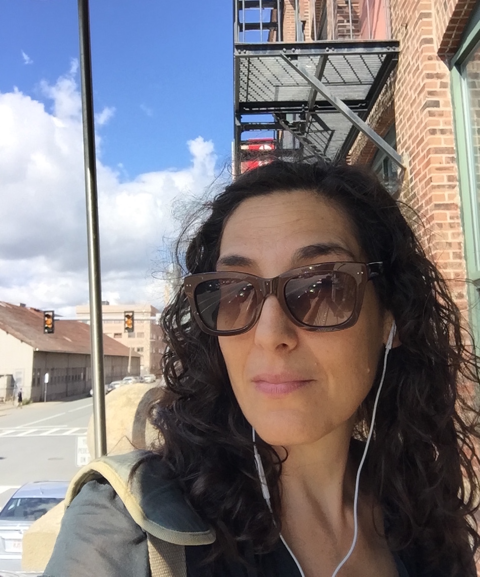You are working on a novel about magic, seduction, and the first American department stores (for which you received a research fellowship from the New-York Historical Society). I’m so intrigued by this! Can you tell us a bit more about the project? Perhaps something about the role research is playing? Does research ever play a role in your short stories?
This might be professionally clumsy, but I’ll go ahead and confess that I’ve been working on that novel for about twenty years, on and off. I tend to write a great deal but am very slow to finish any one project, so the department store tale has often had to wait while I worked on stories, libretti, and another novel-in-progress (this one began more recently and involves college applicants, Beethoven’s choral music, and aerial drones). The N-YHS fellowship was, in fact, awarded in 2001, when I spent a month living in an East Village studio apartment, frolicking in their fabulous archives and conceiving the ending to what turned out to be a 400-page first draft. I left just in time to begin my first full-time teaching job: new faculty orientation was September 11. The world is always changing, but it changed very quickly after that date, and my sense of what I wanted to do with the novel changed with it.
The city in the story is a fictionalized version of New York, and the massive department store in question is founded by a self-made American-born man who is in conflict with a wildly successful immigrant named Rosa who heads up an academy for ladies turned fancy brothel. The two consider themselves natural rivals—they’re competing for the city’s desires. The ensemble of other characters—primarily women—are caught up in their machinations, sometimes tragically. In many ways, recent developments in our country have brought the story full circle, and I’ve felt more driven to revise and finish the work.
In terms of research, as I mentioned, the novel was nearly drafted when I started poking around at the Historical Society. I’d already read quite a bit about the first department stores, but what the archives allowed me to do was firm up my sense of the fable I was trying to craft, with the symbol—or the character—of this magically seductive store at its center. And the details of early shopping history are delightful: it’s basically our lives now, without as much artifice and denial (though there were also plenty of both from the start).
Back when I’d written just the first few chapters of the book, I had the opportunity to show it to two New York editors, not to sell, just for feedback. One—a fellow who tended toward Hollywood-esque hyperbole—gushed, spouting terms like “the real deal.” The other pretty much hated it, specifically because it was not, to his eye, a “real deal.” Every single one of his comments attacked what he viewed as historical inaccuracies and general affronts to the New York City of record. Of course he did not complain once that the fantastical elements of the text (and there are many) were factually unsound. It was a good reminder that in order to capture the imagination of your readers, your story must establish the parameters and atmosphere of its world from the get-go, and then never cease to conform to its own logic. Which brings me to your question about research and writing. I hope very much to write worlds that feel both recognizable and somehow new. Research can only inspire that sort of recipe; it can’t provide the precise ingredients.
If you could build your own writing residency, what would it look like? Where would it be? How long would you go away for?
I could come up with some attractive parameters here: quiet would be nice, and somewhere to take walks (I’m a writer of the perambulatory sort). The occasional company of artists working in other mediums (I’m partial to opera composers and painters). But I’ve learned the hard way that fantasies of escape tend to backfire: wherever you escape, you still have to contend with yourself. That said, I do think it is unreasonable, for me at least, to expect to accomplish anything without a room of my own.
What can make or break a piece of flash fiction?
Unity or disunity of the experience. To me, a “flash” of story doesn’t necessarily feel short—but it must feel whole. Of course, that’s both easier and harder to do in just 1000 words.
What kind of story would you love to find in your queue this week?
I’d love to find what I’m always looking for when I read literature: a story that does something I did not know fiction could do. (In my most optimistic moments, which might be my most writerly ones, I believe such stories—long or short—can open the door to something we humans did not know we could do. High hopes for literature and for us, sure. But why not?)


 The core workshop of SmokeLong Fitness is all in writing, so you can take part from anywhere at anytime. We are excited about creating a supportive, consistent and structured environment for flash writers to work on their craft in a community. We are thrilled and proud to say that our workshop participants have won, placed, or been listed in every major flash competition. Community works.
The core workshop of SmokeLong Fitness is all in writing, so you can take part from anywhere at anytime. We are excited about creating a supportive, consistent and structured environment for flash writers to work on their craft in a community. We are thrilled and proud to say that our workshop participants have won, placed, or been listed in every major flash competition. Community works.